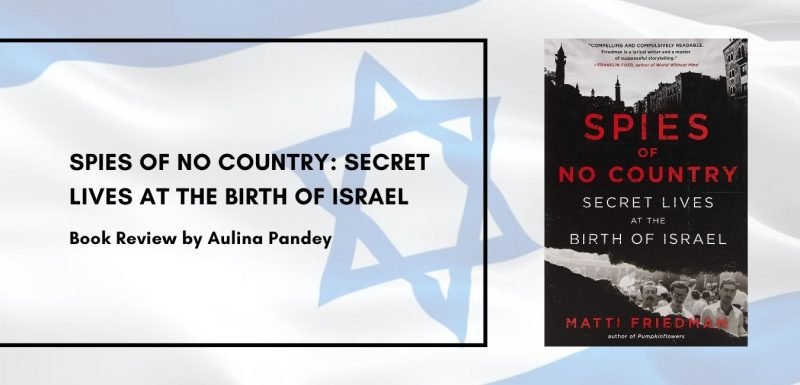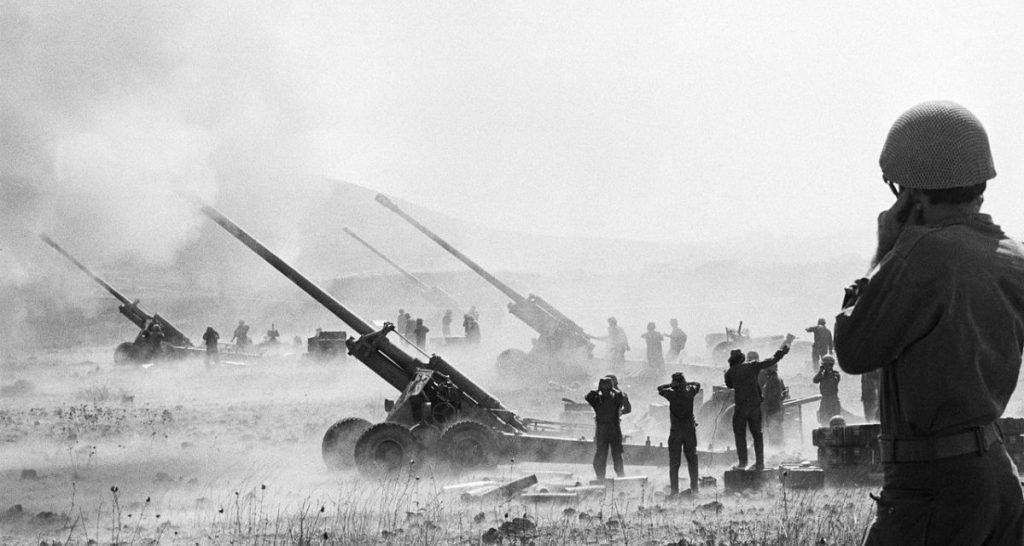[Book Review] Spies of No Country: Secret Lives at the Birth of Israel

They had no country – In early 1948, Israel was a wish, not a fact.
Matti Friedman writes this riveting story of how Israel came to be, through the lives of four Arab Israeli spies in 1948. A Canadian Israeli journalist and author, Friedman peels off layers of complexity that is the history of Israel, with his lyrical storytelling. The story is about four individuals stuck in the middle of a tumultuous political situation using techniques of espionage to navigate through a conflicted territory, while struggling with their own identities as Jews from the Arab world. The four spies were Gamliel, Isaac, Havakuk and Yakuba. Most of the instances in the book, as Friedman mentions, were collected during his conversations with Isaac Cohen, who is now 93 and the only surviving member of the group.
In the book, Friedman touches upon several key historical events that took place in Israel during 1948-1949. One such event was the Battle of Haifa, which not only holds great significance for the establishment of a Jewish State, but is also considered the starting point that led to the Arab-Israeli War. The historical aspects of the book however are not restricted to these two years. The story often takes us back a few years to offer glimpses into the early lives of the four spies, and an insight into how their Zionist consciousness was raised. He keeps readers engaged by painting an almost life-like picture of Haifa, Tel Aviv and Beirut and explains in great detail how the daily lives of the Jews and the Arabs played out. It is interesting to note how the spies from both sides managed to co-exist in the same space during this time. Their primary strategy being to collect intelligence about upcoming attacks and plans by learning the Arab language, culture, music, prayers, hand gestures and even dialect. To some extent, it makes one wonder that if this endeavour to understand the depth of Arab culture was taken up to foster trust and empathy rather than to spy, would the story of Israel have been a little different today? While the title of the book might suggest that this is an action filled spy novel or a comprehensive history of the Israeli intelligence and the unit, to my pleasant surprise, I found that Friedman’s story centred more around the humane aspects of the lives of these spies. As he writes, “I was looking less for a sweep of history than for its human heart, and found it at these coordinates.”

Most of the action in the story takes place behind a refreshment kiosk outside an elementary school in Beirut. In the absence of a systematic institutional hierarchy and government, the smooth functioning of the Unit makes for interesting take into middle eastern security measures at the time. In the story, the first foreign intelligence unit of Israel functioned in a rather unusual manner. The spies would sell sweets and cigarettes from the front of the kiosk, while at the back, they had a transmitter disguised as a laundry line for secret communication with their leaders. Their cover was perfect for reconnaissance operations; as they had their ear to the ground and were able to create a strong network by staying close to the Arab locals. They even managed to carry out covert missions like blowing up Hitler’s yacht without any suspicion. Gamliel and Isaac, who were initially part of this unit, eventually joined the Mossad, the infamous Israeli spy service. The story also gives us a partial insight into how Mossad came to be.
An interesting take in the book is Friedman’s appeal to view the story of Israel through a Middle Eastern lens. He observes that Israel is “not just a refugee camp for the Jews of Europe” but also a “minority insurrection in the world of Islam.” He acknowledges the unique link between the Jews from the Islamic world and the story of Israel. Therefore, Freidman uses the word mista’arvim to refer to this unit of spies- which roughly translates to “One Who Became Like Arabs.” Friedman also writes about a strike force called Palmach, an elite fighting force that operated during the British Mandate. This military unit recruited displaced Jews as part of their underground army, and within this army is where the “Arab Section” existed. Sometimes referred to as the “Black Section” because of the difference in their skin colour, The Arab Section included the Jews from the Islamic world – like the four spies in the story. This military unit, operating extensively at the fag end of British colonialism in Palestine, consisted of Jews who were embedded in their own country as strangers and spies. Freidman observes that the recruits of the Arab Section had a better understanding of why there was such an urgent need for a separate Jewish state. And the things they’d had to undergo to get one, than their European counterparts.

John le Carré stated that, “Espionage is the secret theatre of society.” The story seemed theatrical in terms of the dramatic depictions of missions to blow up cars and yachts, attempted assassinations and war. However, an objective approach backed by real facts and photographs ran parallelly to these theatrics challenging any pre-existing ideas one might have had about Israeli society, culture and intelligence. Friedman observes that the feeling of community that was felt by Jews at the camps or Palmach “was central to the creation of Israeli society”. He notes that, “the gatherings ended up acting as a portal through which pieces of the Arab world passed into the culture of the new Jewish state.” These observations about the Israeli society were particularly enjoyable as it covered an understanding of the people rather than the technical aspects of the war and politics. Along with being an easy and enjoyable read it gives an accurate description of historical events and explores human perspectives in the ideas of war, identity, politics, and historical espionage in the Middle East. Overall, this book is an important story for anyone looking to understand the ground situation in Israel around 1948 through the lives of four spies whose lives are as entwined with the fate of the Islamic world as with the creation of the State of Israel.


















